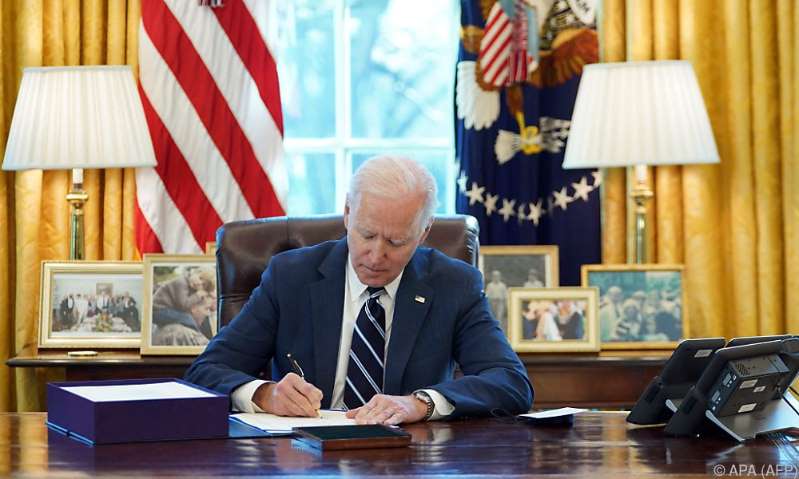In the fight against the economic consequences of the corona pandemic, US President Joe Biden has put his 1.9 trillion dollar (1.6 trillion euros) aid package into effect. He signed the US bailout bill on Thursday that Congress passed on Wednesday. It gives the middle class and the working population – the “backbone” of the country – a fair chance, said Biden in the White House. He spoke of historical legislation.

Image: APA (AFP)
The package is one of the biggest stimulus packages of all time. It corresponds to almost ten percent of the annual US economic output. It is set to boost the economy, which has been hard hit by the pandemic, and create millions of new jobs – and could even boost the economy in Europe.
According to experts, Americans with low and middle incomes will particularly benefit from the new aids. The plan includes a one-time direct payment for most taxpayers of $ 1,400. Larger tax breaks and further direct payments are planned for families with children. In addition, there should be financial aid for coronavirus tests, the vaccination campaign, school openings and additional support for the unemployed.
Many Republicans had blocked such extensive aid – in the vote in the House of Representatives on Wednesday, no Republican voted with Biden's Democrats. The House of Representatives had to deal with the package of measures again because there had been changes in the Senate – the other chamber of Congress.
The Democrats had paved the way for the law to come into effect before mid-March. Otherwise, the extended and increased unemployment benefits for millions of Americans would expire on March 14th. Unemployment benefits, which are often very low in the US, are now to be increased by $ 300 a week through September. US Vice President Kamala Harris said earlier this week, in anticipation of the package being passed, that this week could mark a “real turning point in our fight against coronavirus”.
Congress only passed an aid package worth around $ 900 billion at the end of December. After the worsening of the pandemic in the United States, parliament also passed economic stimulus packages worth almost three trillion dollars last spring. The US government's mountain of debt has grown rapidly since then. Some economists also fear that the stimulus package will fuel not only growth but also inflation. The Fed does not yet see such dangers.
US Treasury Secretary Janet Yellen believes the risk of long-term consequences for the American people is greater than the risk of inflation. And the new aids are well received by the population, as surveys of the past few days have shown. The White House has announced that Biden will take a “help is here” tour to promote the aid package to citizens in the country. Next Friday he plans to travel to Atlanta in the US state of Georgia.

